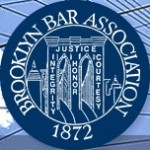The LAW FIRM OF DAYREL SEWELL, PLLC is pleased to announce that Dayrel will be co-presenting a Continuing Legal Education (CLE) course called “Intellectual Property Fundamentals: What Every Attorney Needs to Know” on Monday, May 19, 2014 at the Brooklyn Bar Association.
This Continuing Legal Education event will provide practicing attorneys with a primer to issue spot, analyze, and provide better value to their clients by competently addressing the various intellectual property issues that arise in a myriad of business transactions and lawsuits.
Along with an overview of the main intellectual property areas of patent, trademark, and copyright, this course will provide key practice points, current case law, and analytical framework that are sure to add value to your practice.
While many attorneys lack the STEM background required to become a registered U.S. Patent Attorney, one would be remiss to ignore the significant, valuable intellectual property ramifications of various business decisions. From employment contracts to social media to portfolio licensing, intellectual property is all around us.
Intellectual property (IP) is an overarching term for the legal protection of creations, inventions, products or processes that originate from a person’s mind or ‘intellect’. Generally-speaking, intellectual property fits into one of four distinct categories: patents, trademarks, copyrights, and trade secrets. While some of the principles are similar to real property, there is a plethora of rules and laws to protect such intellectual inventions both domestically and internationally.
The United States Patent and Trademark Office (USPTO) is the federal agency for granting U.S. patents and registering trademarks. In doing this, the USPTO fulfills the mandate of Article I, Section 8, Clause 8, of the Constitution that the legislative branch “promote the Progress of Science and useful Arts, by securing for limited Times to Authors and Inventors the exclusive Right to their respective Writings and Discoveries.” The USPTO registers trademarks based on the commerce clause of the Constitution (Article I, Section 8, Clause 3). Additionally, The USPTO advises the president of the United States, the secretary of commerce, and U.S. government agencies on intellectual property (IP) policy, protection, and enforcement; and promotes the stronger and more effective IP protection around the world.
Refreshments and networking will immediately follow the CLE presentation. The attached flyer contains further course and registration information. You are encouraged to attend this fun and informative event. We look forward to seeing you!
Intellectual Property Fundamentals What Every Attorney Needs to Know

